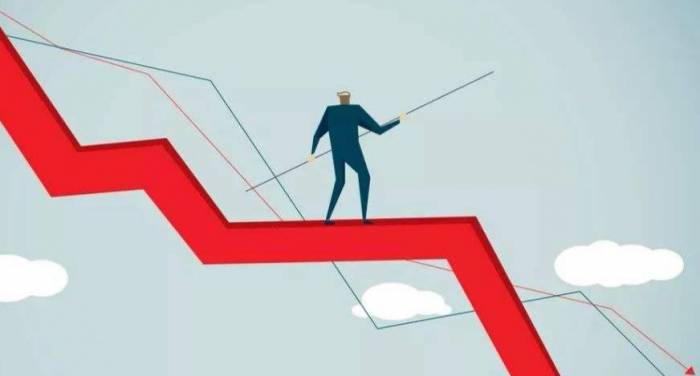Nikkei 225 Plunges Over 3% in Tokyo Trading
What's going on? Japanese stock market plunges again!
On the morning of September 9th, the stock markets of Japan and South Korea opened sharply lower, with the Nikkei 225 Index and the South Korean Composite Index both falling by more than 2%. After the opening, the Nikkei 225 Index continued to decline, falling by more than 1,000 points at the beginning of the trading day, with the drop once exceeding 3%.
In the market, Japanese financial and automotive sectors declined, with significant drops in major stocks such as Toyota Motor, Mitsubishi UFJ Financial Group, and Mizuho Financial Group; chip stocks also plummeted, with Renesas Electronics falling by more than 8% and Tokyo Electron by more than 6%.
On September 9th, the yield on Japan's two-year government bonds rose by 1.5 basis points to 0.39%, the highest level since August 2nd.
It is reported that the "Black Monday" in the Japanese stock market is related to the market's concerns triggered by last week's U.S. non-farm employment data. The data released last Friday showed that the U.S. employment data for August was slightly lower than expected: the non-farm employment increased by only 142,000 people in August, lower than the Dow Jones forecast of 161,000; the unemployment rate dropped to 4.2%, in line with expectations.
Advertisement
In addition, the U.S. employment data for July was revised down from 114,000 to 89,000, and the June data was revised down from 179,000 to 118,000. The two months combined revised down by 86,000 new jobs. Although the unemployment rate met expectations, the weak job growth still triggered market concerns about the global economic outlook.
After the data was released, the U.S. stock market plummeted last Friday. After the release of Japan's labor cash income data and the U.S. non-farm data, the Japanese 225 Index futures fell by more than 5% again, showing the market's high sensitivity to economic data and concerns about the future economic outlook.
According to Wind data, historically, global stock markets have mostly fallen sharply during the period of the Federal Reserve's interest rate cuts. Michael Hartnett, the chief investment strategist at Bank of America, said that the market is "selling the first interest rate cut," and risk assets have actively taken the lead over the Federal Reserve and no longer focus on lower growth.
Furthermore, with the release of economic data and adjustments in central bank policies, market expectations for the Bank of Japan's interest rate hike are also rising. Data from Japan's Ministry of Health, Labor, and Welfare showed that real wages adjusted for inflation in July rose by 0.4% year-on-year, increasing for two consecutive months, mainly driven by wage increases from spring labor negotiations and summer bonuses. Nominal wages increased by 3.6% during the period, increasing for 31 consecutive months.
Recently, Haruhiko Kuroda, the former governor of the Bank of Japan, said in a video at the Shanghai Bund Conference: "The Bank of Japan is trying to gradually approach the nominal neutral interest rate, which may be below 2%... The short-term nominal interest rate may be below 2%, possibly around 1.5%, or even lower." As expectations for the Bank of Japan's interest rate hike gradually rise, the Japanese stock market is also affected.When asked about market expectations for further interest rate hikes by the Bank of Japan, Chief Cabinet Secretary Yoshimasa Hayashi stated that monetary policy should be considered or judged by the Bank of Japan itself. If the economic situation requires stimulation, he would prefer to increase spending rather than cut taxes.
In July of this year, the Bank of Japan carried out its second interest rate hike of the year, causing the yen to rise rapidly and leading to significant market fluctuations. Japanese stocks plummeted at the beginning of August, even dragging down global stock markets in tandem and attracting high levels of investor attention.
The macro team at Shanghai Pudong Development Bank International pointed out that over the past month or so, changes in the fundamentals of the Japanese economy have been a mixed bag. On one hand, Japan's second-quarter economic growth exceeded expectations, and there were slight signs of improvement in private consumption. On the other hand, economic indicators related to businesses and foreign trade performed poorly, and the inflation data for July did not yet reflect the positive impact of the significant increase in spring wage negotiations.

The team believes that Japan will still have one interest rate hike this year, which could be realized as early as the October meeting. If the U.S. economy enters a recession, the Bank of Japan may prefer to remain on hold this year. In addition, there is a need to be vigilant against the risk of the Bank of Japan being too hawkish, leading to a stagnation in the Japanese economy. Under the basic assumption that the Bank of Japan will have one more interest rate hike this year, the yen is expected to still have room for appreciation.
Leave A Comment